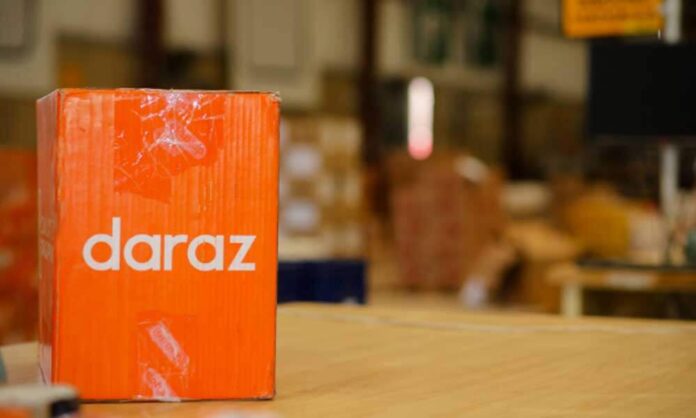LAHORE: Merchants under the names NextGenTech and Garden Seeds are among a handful of businesses using 3rd party marketplace on Daraz.pk to sell fake likes, followers, views, and more around TikTok.
In this regard, Xaxis associate business director Ghulam Jilani Kothari was the first to spot the listings, sharing his findings in a LinkedIn post.
The practice of selling fake engagement metrics caters to a market where advertisers and agencies prioritise content creators that can boast a huge following or content engagement, which are two areas ripe with ad fraud as reported by Profit. A report by cybersecurity firm Cheq projected that fake fans cost advertisers $1.3 billion in 2019 alone.
As a result, the Alibaba Group-owned eCommerce business is inadvertently contributing to the global ad fraud problem by allowing merchants to sell a service that content creators use to inflate either their actual reach with fake followers or doctor their engagement rate, both with the end goal of fooling advertisers and agencies that are too avaricious for influencer marketing planning tools or fraud detection software.
In it’s listing, NextGenTech tells prospective buyers that they should directly message the service instead of waiting for Daraz delivery, circumventing the very marketplace they are using for product discovery. The merchant claims to offer buyers, 100 organic TikTok followers, while the service offered by Garden Seeds rather transparently offers 1,000 inactive followers that are outside Pakistan.
The latter scenario can also be detected by influencer marketing campaign planning software such as Upfluence or Traackr, with the aforementioned merchants counting on the unwillingness of advertisers and agencies to invest in fraud countermeasures.
Why the fuss?
In August, the California Fourth District Court of Appeals reversed a 2019 trial court ruling and reinstated claims from a woman who says she suffered third-degree burns when a defective laptop battery she bought from a third-party seller on Amazon caught fire. In doing so, the appeals court held Amazon liable for defective products sold on its Marketplace – which accounted for half of its $280B revenue in 2019 – meaning that if you buy a defective third-party product on Amazon, it might be Amazon that’s responsible.
A few weeks later, Amazon public policy leader Brian Huseman said that the company would back the AB 3262 bill – which would extend strict liability law to online marketplaces – provided that this legislation is applied equally to all stores including all online marketplaces.
Profit recognizes that exploding batteries and fake followers are not directly comparable in the harm they do and yet it is true that fake followers, likes, and engagement misleads content consumers and future advertisers that may want to engage with a content creator for the purpose of influencer marketing.
“Let me be honest,” said Neil Patel, a digital marketing consultant. “You can’t pay money for followers on social media and then expect that those followers are committed to you or that there’s even a real person behind the account.”
The documentary “The Social Dilemma” also states that inflated reach and content engagement sets a benchmark for ordinary social media users – that do not know that a content creator is using a service to buy fake followers – and has been tied to teen suicide and depression as a result of not matching the inflated engagement of others.
In the realm of ‘you get what you pay for’, Profit also acknowledges that advertisers and agencies that actively opt-out of using inexpensive fraud detection software, are reaping what they sow in being duped. As with the digital advertising fraud problem, which has been categorized as organized crime, fake followers for content creators and the revenue raked in can be used to fund nefarious criminal organizations – which is the case worldwide.
“When we talk about influencers in Pakistan the audience quality of influencers is 65% on average,” said Umais Naveed, business head of Digital Engagement Network. “However, you come across Influencers with an audience quality of less than 50% more often than not. With DEN we work with Influencers who have an audience quality at least an average or more so brands associated with us get the best return on their investment.”

























Plz grow my tiktok account